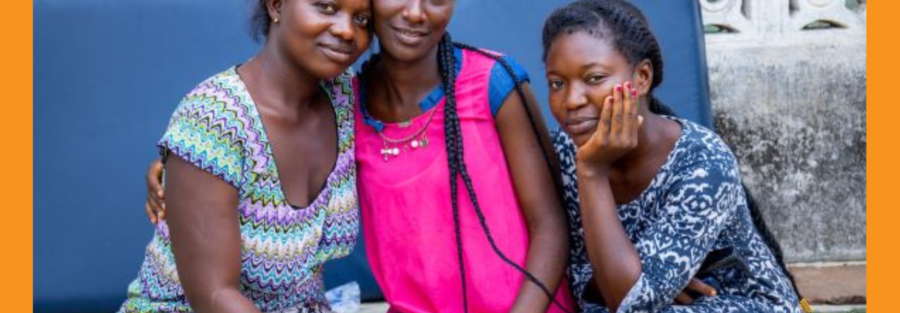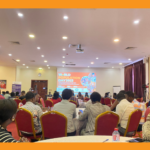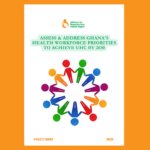Perceived as the most common type of violence, sexual and gender-based violence refers to any act that is perpetrated against a person’s will and is based on gender norms and unequal power relationships. It is considered a violation of the human rights of survivors, and includes physical, social, sexual, economic, domestic, and psychological abuses with women, girls, and persons living with disabilities often suffering the most impact.
To fully comprehend the scale of the issue, available data from the United Nations Population Fund (UNFPA) indicates that one in three women may encounter sexual and gender-based violence in their lifetime. A 2016 domestic violence survey conducted in Ghana revealed that 27.7% of Ghanaian women have suffered at least one type of domestic violence spanning sexual, economic, psychological, and physical violence. According to the survey, 38.2% of women between the ages of 15 and 19, 40.4% between the ages of 20 and 24, and 38.3% between the ages of 30 and 39 reported experiencing at least one incident of sexual violence. Additionally, statistics from the 2020 UN Women worldwide database revealed that lifetime physical and/or sexual intimate partner violence in Ghana stood at 24%.
All forms of violence have devastating consequences on the empowerment and overall well-being of women and girls as they impact their mental and physical health—increasing their susceptibility to sexual infections, unintended pregnancies, anxiety, depression, post-traumatic stress disorder, and further exposure to violence due to rejection by the family and society because of unfavourable social norms. Also, sexual and gender-based violence poses a grave threat to the fight against gender inequality as it greatly has the potential to widen the inequality gap.
Scenarios such as armed conflict, natural disasters, and humanitarian emergencies weaken the capacity of society to protect women and children from sexual and gender-based violence. During the Covid-19 lockdown, for example, besides the devastating impact on Ghana’s health system and economy, the vulnerability of women and girls to sexual and gender-based violence heightened mainly due to the long hours spent with potential aggressors. At the peak of the pandemic, between March and May 2020, a UNFPA-supported reporting system showed that over 4,000 cases were recorded and reported to the Domestic Violence and Victims Support Unit (DOVVSU); a specialized unit within Ghana’s Police Service mandated to prevent, investigate and prosecute all cases involving domestic violence, gender-based violence and child abuse.
The numbers are alarming and it is no surprise that sexual and gender-based violence against women, in addition to COVID-19 was recognized by the Secretary of the United Nations as a global pandemic.
Way Forward
The impact of gender-based violence on the overall well-being of women and girls, communities, and a country’s economy is immeasurable. Eliminating all forms of sexual and gender-based violence requires a whole-of-government and a whole-of-society approach.
Government must among other things and as needed, collaborate with CSOs, the private sector and other institutions to strengthen existing response and referral systems; intensify and make accessible information about sexual and gender-based violence to the general public, improve and expand channels for reporting cases and accessing support services by victims.
Centres for providing psycho-social counselling for victims and survivors must also be expanded. Beyond these, there is a need for improved government planning and policies, including social safety nets to safeguard these vulnerable populations against future pandemics.
More so, harmful social norms that reinforce sexual and gender-based violence must be addressed, while encouraging victims to report incidences.



